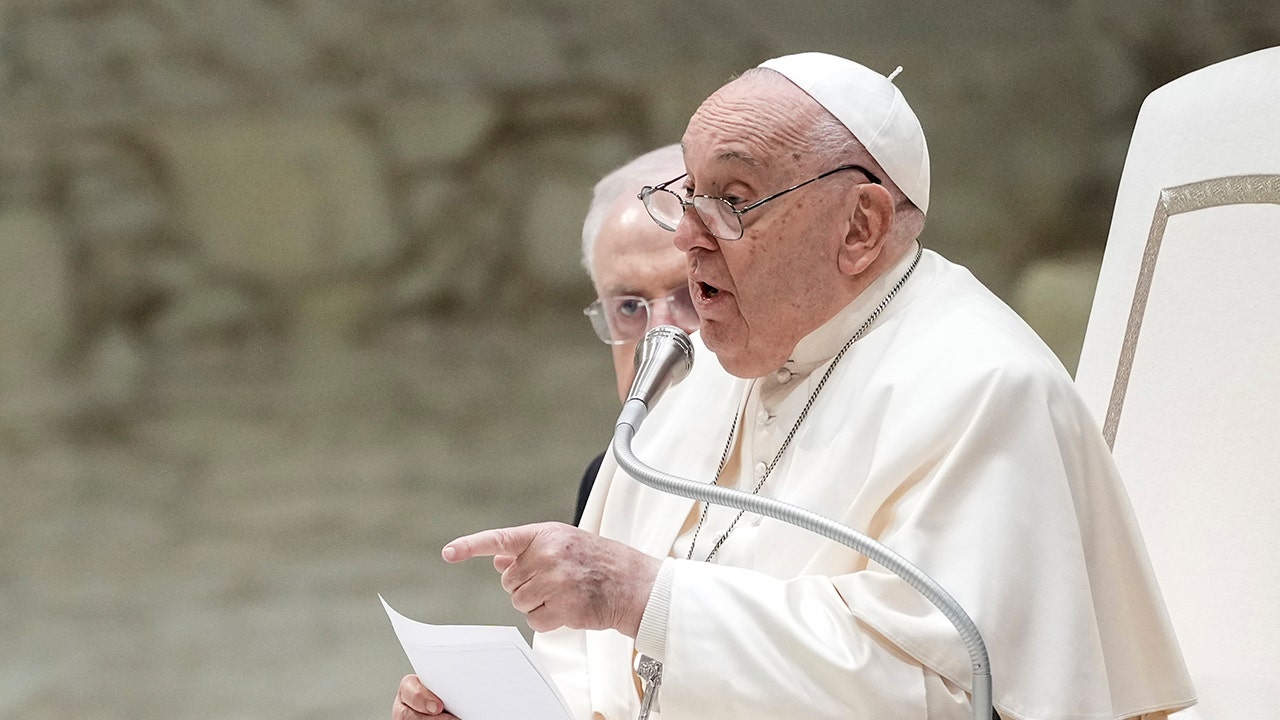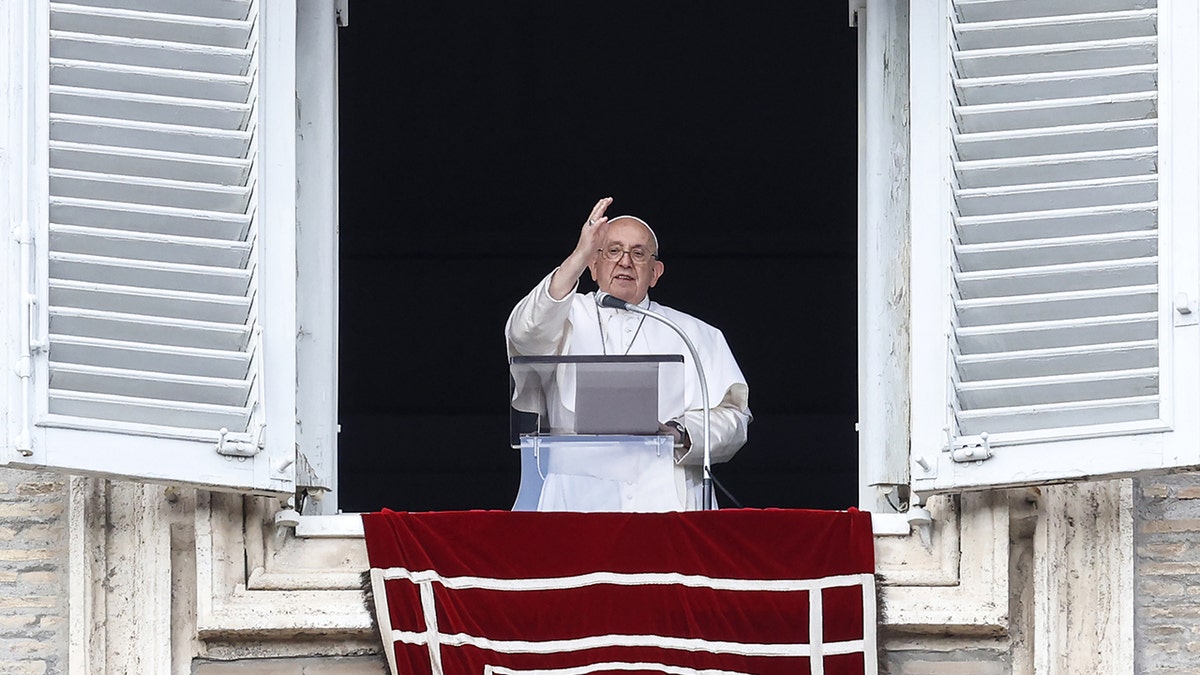- Ukraine and Russia are in wartime technology arms race
- Kyiv aims to innovate way to down Russian drones cheaply
- Ukrainian drone output booming despite Russian attacks
- State programme hopes to procure 200,000 drones in 2023
World
Inside Ukraine’s tech push to counter Russian ‘suicide’ drone threat
/cloudfront-us-east-2.images.arcpublishing.com/reuters/KCB6WX6NOVL3NNH4UNYIW4PSXM.jpg)
KYIV, July 5 (Reuters) – In a basement in downtown Kyiv late last month, away from prying eyes, hundreds of engineers and innovators met senior military officials to brainstorm ways to better neutralise the cheap Russian suicide drones that still devastate Ukrainian cities.
It was a rare, close-up glimpse into Ukraine’s technology arms race with Russia that draws on private sector innovation seeded with state venture capital, and which is pumping out thousands of combat drones in a booming wartime industry.
“The war today is technological, with changes in technology and on the battlefield happening every day,” Mykhailo Fedorov, Ukraine’s deputy prime minister and minister for digital transformations, said on the sidelines of the gathering.
Reuters was the only media outfit invited to the event, where high-ranking army officials and ministers mingled with engineers and eccentric enthusiasts. One man arrived in shorts and a baseball cap with a large drone under his arm.
Organisers distributed $3 million in prize money among three teams of experts deemed to have presented the best drones or electronic warfare technology against Russia’s “Shahed”, drones of Iranian origin which cruise in swarms to their targets and detonate on impact.
In May, Russia attacked Ukraine with a record monthly total of more than 300 drones, official data shows, a challenge for planners anxious to protect energy supplies this winter. Last winter Russia tried to cripple the power grid with air strikes.
“We want to prepare for the… next winter to respond to these challenges,” Deputy Prime Minister Oleksandr Kubrakov said.
The Iranian drones fly so low that they can avoid detection by air defences, while their navigation systems are robust enough to make it hard to take them down with anti-drone electronic warfare weapons that disrupt radio frequencies.
The West has supplied sophisticated air defence systems to counter missile attacks, but taking down swarms of drones that cost $50,000 a piece with $1 million missiles is not ideal, officials say.
“That’s not profitable, so we need to constantly cut the cost of the tools we use to destroy Shaheds,” said Fedorov.
“We’re talking about detection (of drones) using acoustic as well as other means, and also about actual destruction.”
The event’s organisers asked Reuters not to disclose the surnames of participants for security reasons.
One of them, Oleksandr, said his team was presenting a “quadrocopter” that has wings in addition to being propeller-powered. He said it could fly much faster and longer than other drones.
“It’ll be a drone that will… take off vertically to intercept or catch up with drones, shoot them down or jam them,” he said.
Another participant, Yuriy, an engineer and deputy head of a Ukrainian company, said his team presented designs for new anti-drone electronic warfare systems that would be more effective against Shaheds.
‘WAR OF DRONES’
Drones have been used widely in wars in Yemen, Syria and Nagorno-Karabakh, but never more than in Ukraine, officials say.
“This really is an unprecedented war of drones,” Fedorov said, adding that Ukraine’s military technology innovation had boomed since Russia’s invasion.
Ukraine launched a crowdfunding project last year aimed at creating an “Army of Drones” that has grown into a state programme covering everything from the production of uncrewed aerial vehicles to the training of drone pilots.
“A few months after the full-scale invasion began, everyone realized that the most effective way to conduct reconnaissance and defeat the enemy was uncrewed aerial vehicles,” said brigadier general Yurii Shchyhol.
Shchyhol, who oversees procurement for the state programme, said it had purchased 15,000 drones so far, with more coming in via the Defence Ministry and others being supplied by foreign assistance and volunteers.
The total number of drones used by Ukraine on the battlefield is not known.
“Our goal this year is to buy more than 200,000 strike and large reconnaissance drones… We will buy as many drones as are available for purchase on the market,” Shchyhol said.
Fedorov said drone production was now taking place all over Ukraine despite the threat of Russian air strikes, adding that manufacturers had been told to spread work over different sites and to use bomb shelters for parts of the production process.
“We see that today this approach works and all producers continue working and missiles are not hitting production. They (strikes) do happen, but not on such a scale,” he said.
More than 80% of procured drones are Ukrainian-made and assembled in Ukraine, Fedorov added.
Anatoliy Khrapchynskyi, who works for a firm developing electronic warfare technology, contrasted Ukraine’s approach to technological innovation with Russia’s.
While Russia’s approach is top-down and dominated by state organisations, he said, Ukraine’s is driven by the private sector and involves many smaller-sized companies.
“There were seven companies that could sell drones to the state when we began this project last year. Today it’s 40 and it will be 50 by the end of the year,” said Fedorov.
He said state venture capital was helping to expand domestic production and that Ukraine had an edge over Russia because it could share technology with foreign partners and did not have to worry about sanctions.
“Thanks to the funds, companies are starting to localise production. Today we do buy parts across the world, including in China. But localisation is gradually happening,” Fedorov said.
Reporting by Tom Balmforth; editing by Mike Collett-White and Gareth Jones
Our Standards: The Thomson Reuters Trust Principles.

Continue Reading
World
Lo que nos dice la decisión de Trump de involucrarse en disputa de gastos sobre los próximos 4 años
WASHINGTON (AP) — Tras días de amenazas y exigencias, Donald Trump tuvo por qué mostrar una vez que los legisladores aprobaron un acuerdo presupuestario en las primeras horas del sábado, evitando por poco que las dependencias estatales se vieran obligadas a cerrar antes de Navidad por falta de fondos.
El presidente electo logró que los republicanos de la Cámara de Representantes eliminaran algunos gastos, pero no logró su objetivo principal de elevar el límite de la deuda. Esto demostró que, a pesar de su decisiva victoria electoral y sus frecuentes promesas de represalias, muchos miembros de su partido aún están dispuestos a desafiarlo abiertamente.
La decisión de Trump de involucrarse en el debate presupuestario un mes antes de su toma de posesión también mostró que sigue siendo más hábil para destruir acuerdos que para hacerlos, y presagió que su segundo mandato probablemente estará marcado por las mismas luchas internas, el caos y el juego al borde del precipicio que caracterizaron su primer mandato.
“Estén atentos. Abróchense los cinturones. Prepárense”, dijo el congresista Steve Womack, republicano de Arkansas, un asignador presupuestario sénior.
Una mirada a la agenda de Trump muestra una cascada de oportunidades para enfrentamientos similares en los años venideros. El presidente electo quiere ampliar los recortes fiscales que promulgó hace siete años, reducir el tamaño del gobierno, aumentar los aranceles a las importaciones y tomar medidas enérgicas contra los inmigrantes no autorizados. Muchos de esos esfuerzos necesitarán la aprobación del Congreso.
Para muchos de los seguidores de Trump, la disrupción podría ser un objetivo en sí mismo. El 37% de los que votaron por él este año dijeron que querían “un cambio total y completo”, según AP VoteCast, una extensa encuesta de más de 120.000 votantes. Un 56% adicional dijo que querían “un cambio sustancial”.
Pero los últimos días dejaron claro la dificultad que Trump podría enfrentar para cumplir rápidamente sus objetivos, especialmente dado que los republicanos solo cuentan con mayorías escasas en la Cámara de Representantes y el Senado. Algunos legisladores ya parecen cansados de la aparente ausencia de una estrategia unificada.
El senador Kevin Cramer, republicano de Dakota del Norte, dijo que la batalla presupuestaria fue “una lección valiosa sobre cómo organizarnos”.
El fracaso de las exigencias de Trump
El problema comenzó cuando los principales legisladores publicaron una copia de la iniciativa de ley, conocida como una resolución continua, que era necesaria para asegurar el funcionamiento del gobierno federal hasta marzo. No fue el presidente electo, sino Elon Musk, el hombre más rico del mundo y confidente de Trump, quien primero comenzó a generar oposición a la ley en las redes sociales al calificarla de gasto excesivo.
Trump eventualmente se sumó a la batalla. Ordenó a los republicanos cancelar el acuerdo bipartidista que habían hecho con los demócratas y exigió que aumentaran el límite de la deuda, el tope de cuánto puede pedir prestado el gobierno, con la esperanza de evitar que ese espinoso problema surgiera cuando ya estuviera en funciones.
Aumentó la presión incluso después de haber modificado sus demandas iniciales. Primero quería eliminar el límite de la deuda por completo. Luego quería suspenderlo hasta 2027. Luego propuso una extensión hasta 2029.
Si las dependencias estatales se vieran obligadas a cerrar por falta de fondos, el presidente demócrata Joe Biden sería culpado, insistió Trump.
“Todos los republicanos, e incluso los demócratas, deberían hacer lo que es mejor para nuestro país y votar ‘A FAVOR’ de esta iniciativa de ley, ¡ESTA NOCHE!”, escribió Trump el jueves, antes de una votación sobre una versión del proyecto de ley que incluía un límite de deuda más alto.
En cambio, 38 republicanos votaron en contra. Fue un desaire sorprendente para Trump, quien a veces pareciera no tener ningún control sobre su propio partido.
“Sin esto, nunca deberíamos hacer un acuerdo”, escribió en Truth Social, su red social.
Si no conseguía lo que quería, Trump dijo que debería haber un cierre del gobierno. También dijo que sus correligionarios pagarían el precio en las elecciones primarias si se negaban a seguir adelante, y dijo que “los obstruccionistas republicanos tienen que ser eliminados”. Señaló especialmente al representante Chip Roy, de Texas, por su nombre y con insultos.
Pero al final, los legisladores dejaron fuera ese aumento del techo de la deuda, y un acuerdo final se aprobó el sábado a primera hora.
Musk y otros aliados de Trump intentaron presentarlo como una victoria porque la ley final se redujo significativamente y omitió elementos impopulares como un aumento salarial para los miembros del Congreso. Charlie Kirk, un prominente activista conservador, escribió en X que Trump ”¡ya está dirigiendo el Congreso antes de asumir el cargo!”.
El presidente de la Cámara de Representantes, Mike Johnson, republicano de Luisiana, dijo que había estado en “contacto constante” con Trump, quien, aseguró, estaba “ciertamente feliz con este resultado”.
Si Trump estuvo de acuerdo, él mismo no lo dijo.
Tras días de publicaciones frecuentes en redes sociales, Trump volvió a guardar silencio el viernes. No ofreció una reacción a la votación final ni emitió ningún comunicado. En cambio, fue a jugar golf en su resort en Florida.
Karoline Leavitt, una vocera de Trump, dijo que el presidente electo ayudó a prevenir un acuerdo original “lleno de despilfarros demócratas y aumentos salariales para los miembros del Congreso”.
“En enero, el presidente Trump y el Departamento de Eficiencia Gubernamental (DOGE, por sus siglas en inglés) continuarán esta importante misión de eliminar el despilfarro de Washington, una ley a la vez”, dijo. El DOGE es un panel asesor que será liderado por Musk y el empresario Vivek Ramaswamy.
Más enfrentamientos en el horizonte
La atmósfera circense de la lucha por el presupuesto recordó al primer mandato de Trump. En aquel entonces, un enfrentamiento presupuestario llevó a un cierre del gobierno cuando Trump exigió dinero para su muro fronterizo entre Estados Unidos y México. Después de 35 días, el cierre más largo de la historia, accedió a un acuerdo sin haber logrado los fondos que había exigido.
Fue un punto bajo político para Trump, y el 60% de los estadounidenses lo culparon por el cierre, según una encuesta realizada por The Associated Press y el NORC Center for Public Affairs Research en ese momento.
Trump no dejó de intentar doblegar a los republicanos a su voluntad en ese entonces y ciertamente no lo hará en este momento.
Trump está aumentando la presión sobre su propio partido por sus elecciones para el gabinete, empujando a senadores republicanos reacios a aceptar algunos de sus nombramientos más controvertidos, como el activista antivacunas Robert F. Kennedy Jr., a quien eligió como secretario de Salud y el presentador de Fox News Pete Hegseth como secretario de Defensa.
Pareciera que los debates sobre el presupuesto del próximo año definitivamente pondrán a prueba aún más la influencia de Trump en la Cámara de Representantes. Muchos conservadores ven el rápido crecimiento de la deuda federal como una amenaza existencial para el país que debe abordarse. Pero algunos republicanos temen una reacción negativa de los votantes si se realizan recortes drásticos a los programas federales de los que dependen los estadounidenses.
Las preocupaciones sobre el gasto deficitario podrían intensificarse si Trump impulsa los recortes fiscales costosos que prometió durante la campaña, como eliminar los impuestos sobre las propinas, la Seguridad Social y el pago de horas extras.
Trump también pretende ampliar los recortes fiscales que promulgó en 2017 y que deberán llegar a su fin el próximo año. Ha pedido una reducción adicional de la tasa de impuestos corporativos de Estados Unidos del 21% al 15%, pero sólo para las empresas que producen en Estados Unidos.
Trump ha dicho que pagará las caídas en los ingresos con aranceles agresivos nuevos, los cuales, advierten los economistas, resultarán en precios más altos para los consumidores.
El representante Dan Crenshaw, republicano de Texas, dijo que la reducción del gasto público probablemente seguirá siendo un abismo entre Trump y los republicanos de la Cámara de Representantes.
“Eso nunca ha sido realmente una promesa de campaña de Trump, pero es una gran prioridad para los republicanos de la Cámara de Representantes”, dijo.
No había indicios de que la animosidad estuviera disminuyendo el sábado. Algunos republicanos culparon al liderazgo de la Cámara de Representantes por no asegurar la “bendición” de Trump en el acuerdo original. Los demócratas presentaron a Trump como segundo violín de Musk.
Mientras Trump se mantenía callado, Biden anunció que había promulgado la ley presupuestaria.
“Este acuerdo representa un compromiso, lo que significa que ninguna de las partes obtuvo todo lo que quería”, dijo. “Pero rechaza el camino acelerado hacia un recorte de impuestos para multimillonarios que buscaban los republicanos, y asegura que el gobierno pueda continuar operando a plena capacidad”.
___
Boak reportó desde West Palm Beach, Florida, y Colvin desde Nueva York.
____
Esta historia fue traducida del inglés por un editor de la AP con la ayuda de una herramienta de inteligencia artificial generativa.
World
Pope to skip outdoor Sunday prayer after catching cold days ahead of Christmas Eve, Day Masses

The pope has contracted a cold and will skip his usual outdoor Sunday prayer, instead giving the blessing indoors just days ahead of his Christmas Eve and Day Masses, the Vatican said Saturday.
Chilly weather and the pope’s busy schedule during Christmas week were cited as reasons for the 88-year-old giving the blessing from his residence at the chapel of the Vatican’s Santa Marta quarters.
The pope usually addresses the public from the window of St. Peter’s Basilica overlooking St. Peter’s Square on Sundays.
BIDEN HEADING TO VATICAN CITY NEXT MONTH TO MEET WITH POPE FRANCIS, MELONI IN FINAL OVERSEAS TRIP
Pope Francis exchanges the season’s greetings with Vatican employees on Saturday. (AP Photo/Andrew Medichini)
Pope Francis sounded congested on Saturday as he gave his annual Christmas greeting to Vatican bureaucrats.
The octogenarian has suffered from bronchitis before, including last year when he was hospitalized, and he also missed a climate change meeting in Dubai last year because of the flu and lung inflammation.

The pope has contracted a cold and will skip his usual outdoor Sunday prayer, instead giving the blessing indoors just days ahead of his Christmas Eve and Day Masses, the Vatican said Saturday. (AP Photo/Andrew Medichini)
POPE FRANCIS REVEALS HE WAS NEARLY ASSASSINATED DURING HISTORIC IRAQ TRIP
The pope developed pleurisy in his 20s and was forced to have part of his lungs removed in his native Argentina.

The pope usually addresses the public from a window of St. Peter’s Basilica overlooking St. Peter’s Square on Sundays. (Riccardo De Luca/Anadolu via Getty Images)
Christmas Eve also marks the beginning of the Vatican’s Holy Year in which around 32 million pilgrims are expected to head to Rome throughout 2025.
The pope will open the Holy Door of St. Peter’s Basilica on Christmas Eve and On Dec. 26, he will go to Rome’s main prison to inaugurate the start of the Holy Year there.
The Holy Year, also known as the Jubilee, is usually held every 25 years.
The Associated Press and Reuters contributed to this report.
World
Iceland says it will put EU membership to referendum by 2027

Iceland has traditionally been ambivalent about joining the bloc but issues like the 2008 financial crisis, Brexit and a range of domestic issues has meant the country is slowly warming to the idea of membership.
Iceland’s new government has said it aims to put the question of EU membership to a referendum by 2027.
The incoming administration of Prime Minister Kristrún Frostadóttir, which takes over on Sunday, also said it will set up a panel of experts to look into the advantages and disadvantages of retaining the Icelandic crown over adopting the Euro.
“We agreed that a motion in parliament be agreed upon, stating that we will have a referendum on the continuation of Iceland’s European Union accession talks and that this referendum be held no later than 2027,” said incoming Foreign Minister, Þorgerður Katrín Gunnarsdóttir.
Gunnarsdóttir also heads the pro-EU Liberal Reform party and is widely expected to spearhead any accession talks.
According to a poll conducted by market research company Maskína in June, support for EU membership among Iceland’s population is growing.
That poll found just over 54% of respondents were in favour of joining the bloc, with the majority saying they thought households would be financially better off as part of the EU.
That’s a significant swing in favour of membership in a country that has generally been ambivalent about joining the EU.
In his ‘Public Opinion on the EU in Iceland since 1980’ paper published by Denmark’s Aarhus University, Ragnar Auðun Árnason said that for much of the 1980s and 1990s, Iceland was broadly split into three equal camps regarding EU membership; for, against and undecided.
But issues like the 2008 financial crisis, Brexit and a range of domestic issues has meant that Icelanders seem to be slowly warming to the idea of joining the bloc.
And a significant majority of those polled by Maskína – 74.2% – said it was important that the issue be decided by referendum.
New government unveiled
The new government was presented to the public by president Halla Tómasdóttir at a ceremony in the southwestern town of Hafnarfjörður.
Prime Minister Kristrún Frostadóttir, who is the leader of the centre-left Social Democratic Alliance, said she aims to cut inflation and interest rates.
“This new government will face challenges united. Our first task is to stabilize the economy and lower interest rates with strong leadership in fiscal policy. In the meantime, this government will break the deadlock, and work towards greater creation of wealth in the private sector. The quality of life in the country will be increased through unity surrounding these challenges,” she said.
The Social Democratic Alliance became the biggest party in November’s snap elections, called after the previous coalition government led by Bjarni Benediktsson collapsed due to infighting.
It agreed to form a government with the Liberal Reform Party and the centrist People’s Party. It’s the first time in Iceland’s history that the leaders of all the governing parties will be women.
National broadcaster RUV reported that at 36, Frostadóttir will be Iceland’s youngest ever PM.
RUV also said that the incoming administration aims to reduce the number of government ministries in order to cut some administrative costs.
-

 Politics1 week ago
Politics1 week agoCanadian premier threatens to cut off energy imports to US if Trump imposes tariff on country
-
/cdn.vox-cdn.com/uploads/chorus_asset/file/25782636/247422_ChatGPT_anniversary_CVirginia.jpg)
/cdn.vox-cdn.com/uploads/chorus_asset/file/25782636/247422_ChatGPT_anniversary_CVirginia.jpg) Technology1 week ago
Technology1 week agoInside the launch — and future — of ChatGPT
-
/cdn.vox-cdn.com/uploads/chorus_asset/file/25789444/1258459915.jpg)
/cdn.vox-cdn.com/uploads/chorus_asset/file/25789444/1258459915.jpg) Technology1 week ago
Technology1 week agoOpenAI cofounder Ilya Sutskever says the way AI is built is about to change
-

 Politics1 week ago
Politics1 week agoU.S. Supreme Court will decide if oil industry may sue to block California's zero-emissions goal
-
/cdn.vox-cdn.com/uploads/chorus_asset/file/25546252/STK169_Mark_Zuckerburg_CVIRGINIA_D.jpg)
/cdn.vox-cdn.com/uploads/chorus_asset/file/25546252/STK169_Mark_Zuckerburg_CVIRGINIA_D.jpg) Technology1 week ago
Technology1 week agoMeta asks the US government to block OpenAI’s switch to a for-profit
-

 Politics1 week ago
Politics1 week agoConservative group debuts major ad buy in key senators' states as 'soft appeal' for Hegseth, Gabbard, Patel
-

 Business6 days ago
Business6 days agoFreddie Freeman's World Series walk-off grand slam baseball sells at auction for $1.56 million
-
/cdn.vox-cdn.com/uploads/chorus_asset/file/23951353/STK043_VRG_Illo_N_Barclay_3_Meta.jpg)
/cdn.vox-cdn.com/uploads/chorus_asset/file/23951353/STK043_VRG_Illo_N_Barclay_3_Meta.jpg) Technology6 days ago
Technology6 days agoMeta’s Instagram boss: who posted something matters more in the AI age


















